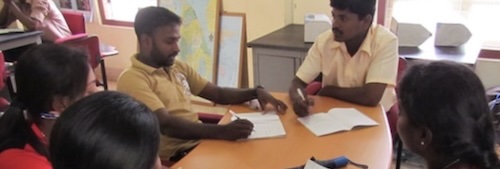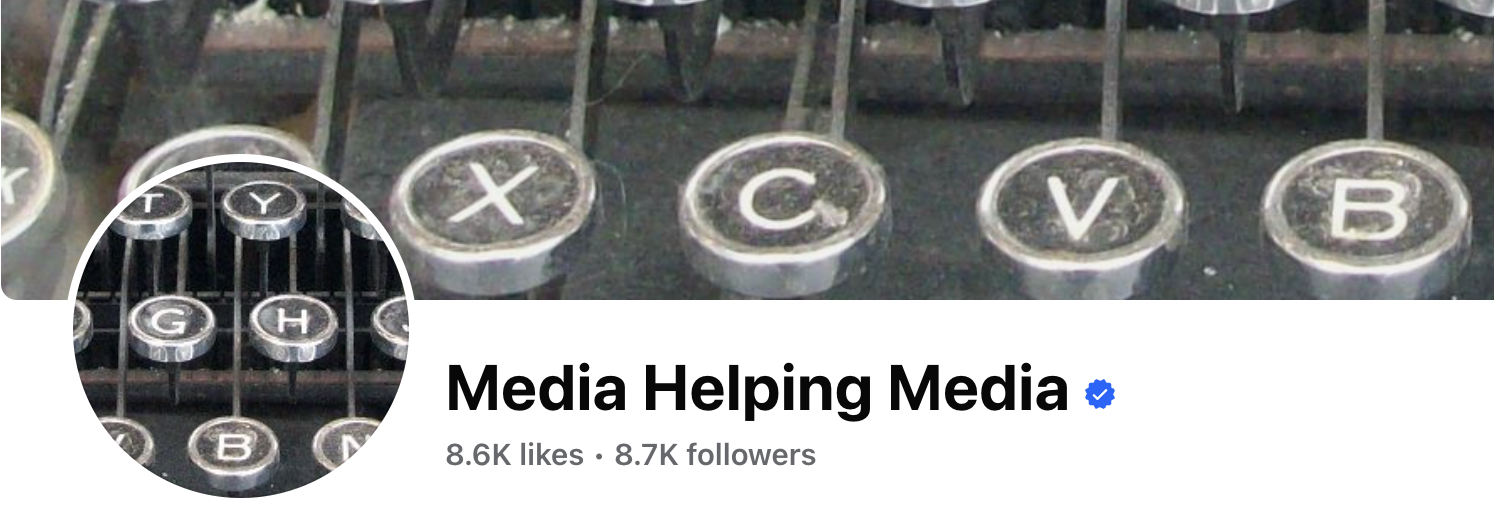 Find out how to make the best use of the training material on Media Helping Media.
Find out how to make the best use of the training material on Media Helping Media.
How to spot a news story
What are the telltale signs that help journalists distinguish fact from fiction, and how do they know when they have uncovered an important news story?
Shoe-leather reporting
Despite the influx of digital information, the foundational skills of "shoe-leather reporting", involving direct contact, investigation, and verification, remain essential for journalists in the modern newsroom.
 Check our Facebook page for regular updates from Media Helping Media.
Check our Facebook page for regular updates from Media Helping Media.
 Media Helping Media provides free journalism and media management training resources.
Media Helping Media provides free journalism and media management training resources.
 The content on Media Helping Media (MHM) is released via Creative Commons BY NC SA 4.0.
The content on Media Helping Media (MHM) is released via Creative Commons BY NC SA 4.0.
 Media Helping Media is proud to be hosted by the Fojo Media Institute.
Media Helping Media is proud to be hosted by the Fojo Media Institute.
Climate change glossary
The following is a list of some of the common climate change terms used by scientists, environmental agencies, governments, activists, and journalists.
What is data journalism?
Data journalism, also known as data-driven journalism, is the process of finding, understanding, and processing information in order to produce news stories.
Dealing with algorithmic bias in news
Journalists need to be trained in how to recognise and deal with algorithm bias in order to counter the speed and scale at which biased content spreads.
Fairness in journalism
Fairness in journalism means exploring all sides of an issue and reporting the findings accurately.
Unconscious bias and journalism
Bias is a prejudice or favour for or against an individual or group. It is often an inaccurate and unfair judgement. We are all biased. It’s normal, although it is not desirable.
Integrity and journalism
Without integrity your journalism is untrustworthy and suspect. Integrity is essential if a journalist wants to investigate issues, shine a light in dark places, and to dig where others don't.
Convergence: workflows, roles and responsibilities
A converged newsroom operates like a 'content factory', with a centralised 'command and control' desk responsible for all news intake, production and output.
Setting up refugee media in exile
This article deals with how refugee communities can set up and operate a successful news organisation when living in exile.
In-depth proactive journalism
Proactive journalism is an approach to newsgathering where reporters take the initiative in seeking out stories.
The skills of media project management
If you are planning a media project - whether it be a new programme, covering a live event, launching a new product, there are certain rules you should observe.
Winning audience trust and loyalty
A media organisation needs to be clear about what it stands for in order to win the trust of the audience.
Adapting to changing audience behaviour
Media organisations need to ensure that the content they produce is available on every device the audience turns to for information.
Informed consent – scenario
In this scenario a reporter covering a disaster finds a grief-stricken woman who he films in order to feature in his report before discovering the truth about the tragedy behind her emotions.
Transparency and full disclosure – scenario
In this scenario a reporter embedded with the military and closely monitored in a war zone wanders off and discovers a story the army wouldn't want him to tell.
Testing boundaries – scenario
In this scenario we look at a situation where an editor faces breaking protocol because of the strength of a story.
SMART objectives for media training
Those delivering media training need to focus on SMART objectives, which are specific, measurable, achievable, relevant, time-bound.
Training of Trainers (ToT)
Training of Trainers (ToT) courses are designed to equip individuals with the skills and knowledge needed to train others.
How media assistance could improve
Trainers have as much to learn as they have to give. That’s the message to those offering media assistance in transition and post-conflict countries from some of those on the receiving end.